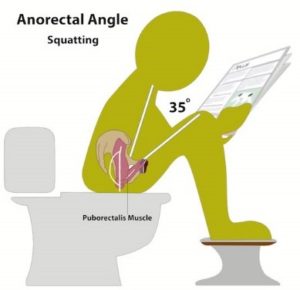Everyday Tips to Relieve Constipation
There comes a point where almost everyone goes through it – constipation. A period of infrequent bowel movements or hard stools. Constipation can be a very uncomfortable state, especially the longer it lasts. Though not severe, if not taken care of, constipation can cause damage to the veins and skin in your anus, in addition to significant damage to intestines. Chronic constipation is also a risk factor for colorectal cancer.
Per the Mayo Clinic, there are a few risk factors that may increase your risk of constipation:
- Older age
- Women
- Dehydration
- Low fiber diet
- Little to no physical activity
- Blood pressure medications/treatments
- Mental health conditions
Luckily our R-Health doctor, Julia Snyder, MD, offers tools to prevent and relieve constipation.
- Eat a whole foods, high-fiber diet
- Eat foods in their unprocessed forms without additives (i.e. sugar, salt, flavorings or preservatives)
- Consider a trial of dairy and gluten free (two food groups that are likely to cause constipation for people)
- Try adding 2 tablespoons of ground flax seeds to your daily diet for extra fiber
- Grind the flax yourself every 2 days for an extra healthy fat boost
- Eat more good fats and try coconut oil
- g. – wild fatty fish like sardines and salmon, avocados, and olive oil (which lubricates the digestive system)
- Supplement with magnesium, vitamin C and probiotics
- Use 200 mg to 1,000 mg of magnesium citrate daily. Gradually increase the dose until you go once or twice a day. If you take too much, you will get loose stools. If that happens, back off a bit.
- Vitamin C – you can take 2,000 to 4,000 mg in divided doses two or three a day, along with magnesium supplementation. The same principle applies here: If you begin to get loose stools, just back off a bit.
- Many people who struggle with constipation are often deficient in healthy gut bacteria, so adding probiotics can help – try adding them for one month. The increased fiber in your diet will give them food to eat and they will be happy to stay. Also add fermented foods/drinks to your diet. (Fermented vegetables are found in the refrigerated section)
- Drink about half your weight in ounces of water each day (add more for hot weather or exercise)
- Try starting off your day with water and lemon (room temperature to warm)
- Cold drinks slow down the bowels.
- Try coffee or tea with an apple and walnuts/pecans/almonds for breakfast
- Exercise regularly
- Get up and move – just 10-15 minutes of walking a few times a day will make a big difference
- Try Yoga – the combination of relaxation and movement aids in triggering the bowels to release
- Give yourself time to go and listen to mother nature’s call!
- Schedule time in to your morning – just like potty training your little ones!
- Position yourself correctly
- Put your feet up on a stool to mimic a squatting position. This allows the muscles to relax and the stool to exit more easily.
Following these suggestions are sure aids in constipation prevention and management. However, if you have questions, or have frequent constipation, notice blood in your stool, and have severe pain in your bowel and/or experiencing weight loss, be sure to reach out to your R-Health doctor for assistance.


